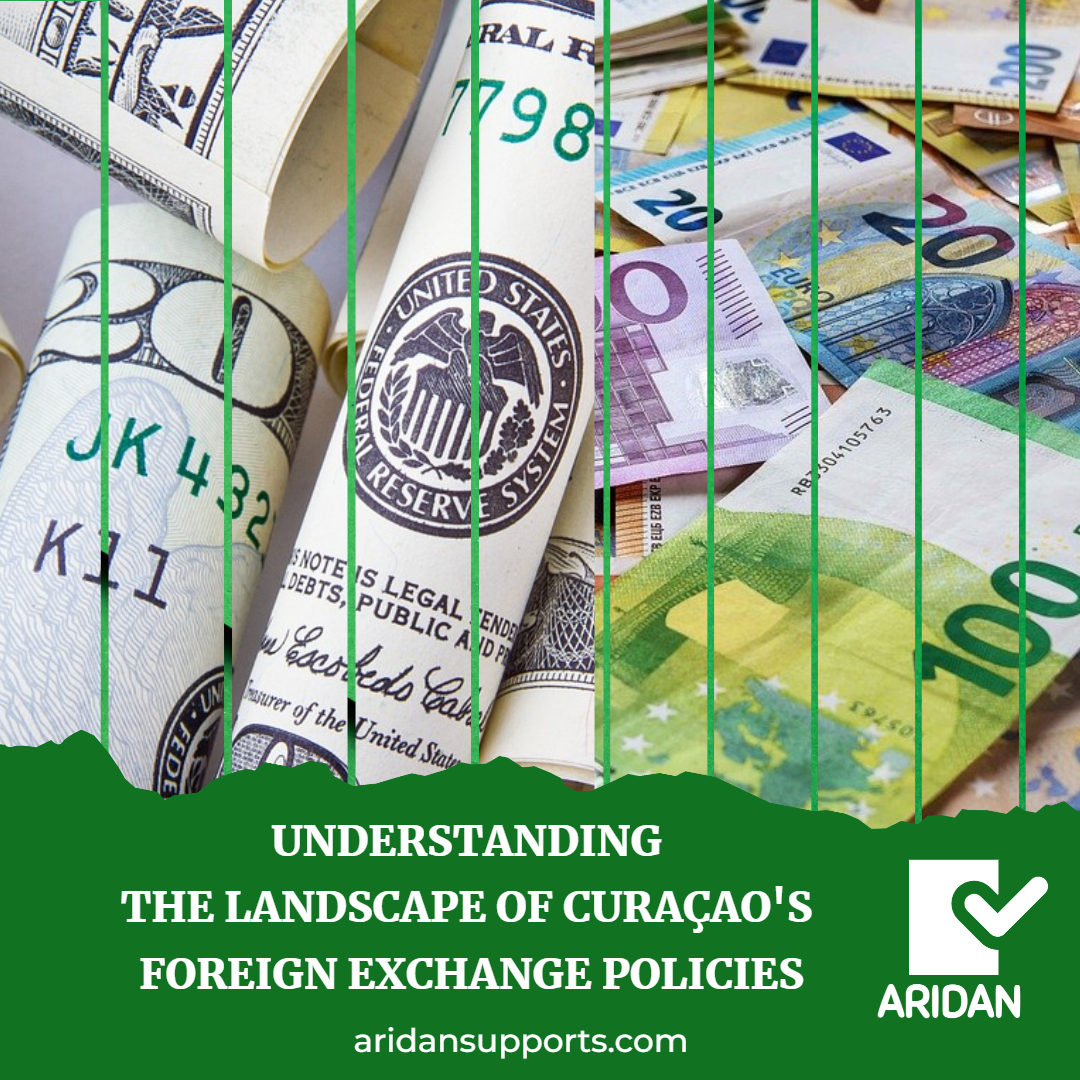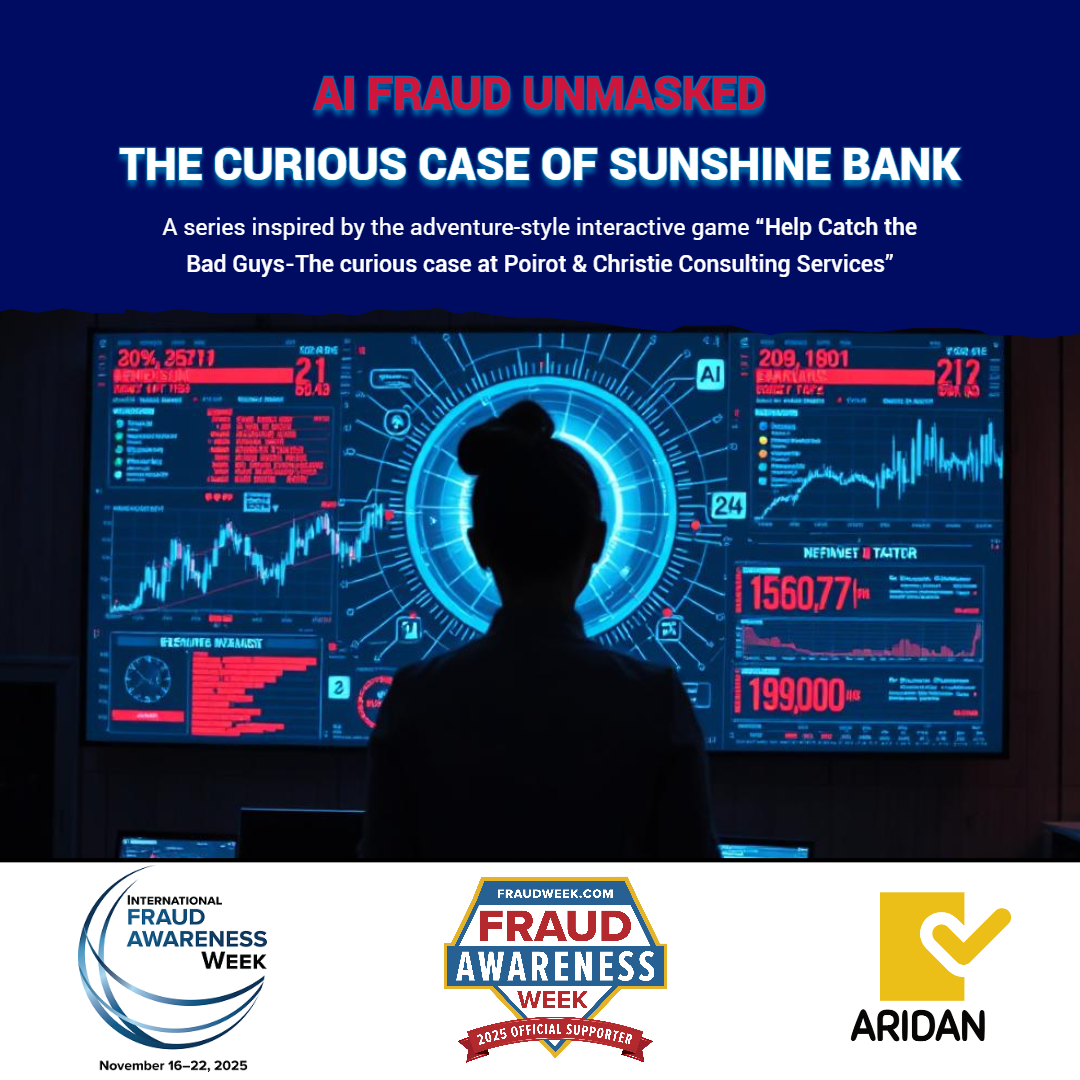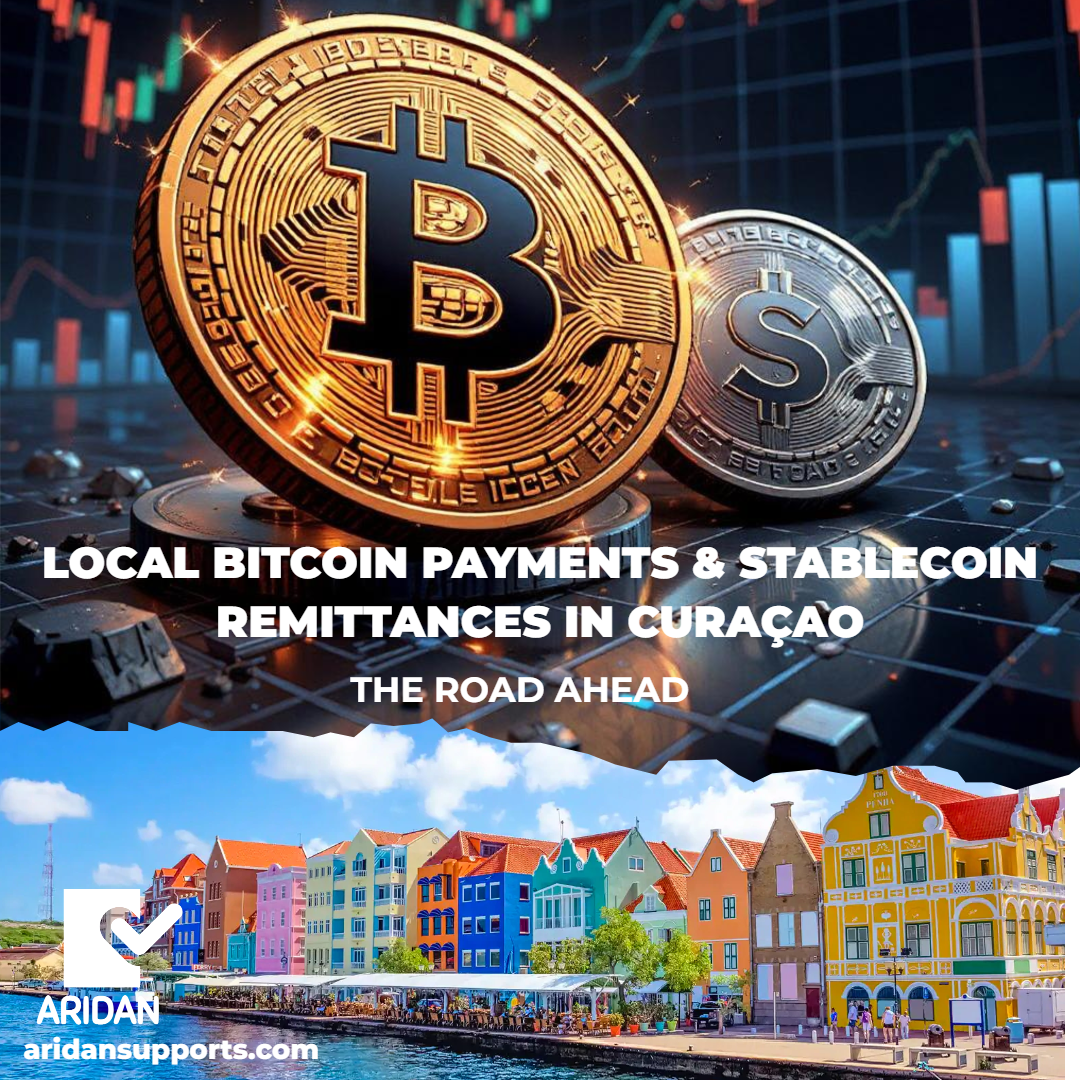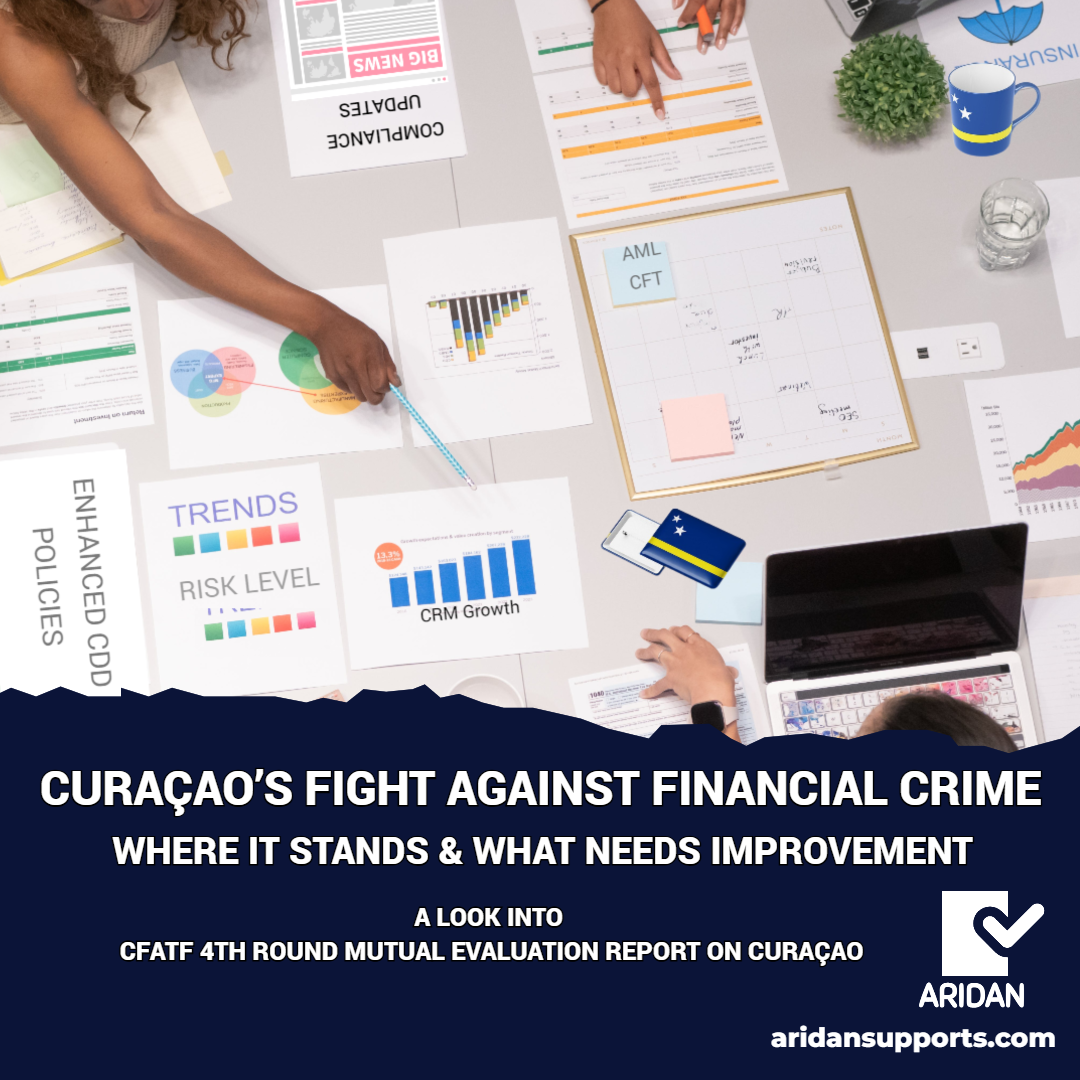Foreign exchange regulation in Curaçao is governed by a series of intricate legal frameworks designed to maintain economic stability and foster growth.
The regulations established by the Centrale Bank van Curaçao en Sint Maarten (referred to as “the Central Bank” hereafter) have evolved to address changing economic conditions and global financial trends.
This article explores the complexities of these regulations, with a focus on key legislative documents and policies. It is intended as an educational resource from a non-legal perspective.
HISTORICAL CONTEXT AND LEGISLATIVE FRAMEWORK
The foreign exchange regulations in Curaçao are structured to control and monitor the flow of foreign currencies mainly USD and EUR. The foundational regulations, encapsulated in the Foreign Exchange Regulation 2010, were further refined in 2017 and by subsequent policy adjustments.
The Foreign Exchange Regulation of Curaçao and Sint Maarten (“Regeling Deviezenverkeer Curaçao en Sint Maarten”) is based on Article 9 of the Charter of the Centrale Bank. Paragraph 2 of this article designates the Central Bank as the central foreign exchange bank, while paragraph 3 states that other banks can operate as foreign exchange banks (hereafter “FEBs”) if certain conditions are met.
FOREIGN EXCHANGE REGULATION 2010 AND 2017
The “Foreign Exchange Regulation 2010” laid the foundational rules for currency exchange, requiring that all foreign currency transactions be reported to the Central Bank.
The 2017 amendments introduced more stringent measures to prevent money laundering and to ensure greater transparency in financial transactions. These regulations mandate that businesses and individuals obtain prior approval for significant foreign currency transactions, thus allowing the Central Bank to keep a tight rein on foreign exchange flows.
Example: A local company in Curaçao wishing to make a large purchase of machinery from Europe must seek approval from the Central Bank before converting guilders to euros. This ensures that the transaction is legitimate and complies with anti-money laundering policies.
EASING OF CAPITAL RESTRICTIONS IN 2021
Recognizing the need to foster a more conducive environment for international trade and investment, the Bank announced the easing of capital restrictions effective October 1, 2021.
This policy shift aimed to facilitate smoother capital flows and enhance the investment climate in Curaçao. The easing of restrictions included measures such as simplifying the process for obtaining foreign exchange permits and reducing the bureaucratic hurdles for foreign investments.
Example: An international company headquartered in Curaçao, planning to invest in a new subsidiary in South America, benefits from the eased capital restrictions, which streamline the process of transferring capital abroad and thus expedite their expansion plans.
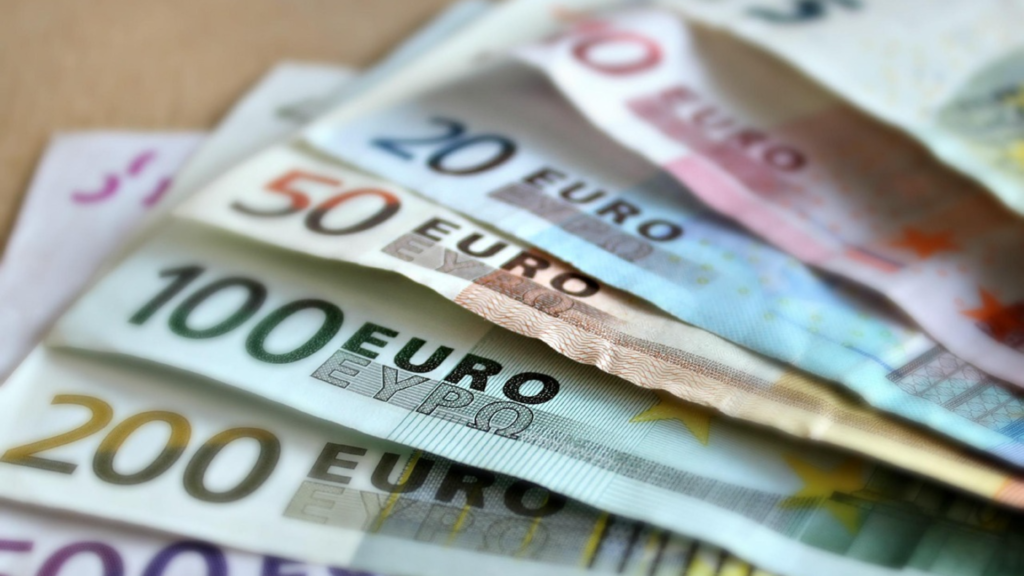
ABOUT COMPANY TYPES
INTERNATIONAL COMPANY
International companies, also referred to as offshore companies, are significant players in Curaçao’s financial sector. The Policy Memorandum on offshore companies details regulations specific to these entities, emphasizing transparency and compliance with anti-money laundering laws.
In simple terms, an international company is a legal entity with its registered office or place of business in Curaçao or Sint Maarten that can be granted dispensation from articles 10-16 of the Foreign Exchange Regulation 2010.
Example 1: An international company managing funds for clients in Europe and Asia must regularly report its foreign currency transactions to the Central Bank to ensure compliance and transparency, preventing financial crimes and bolstering trust with international clients.
Example 2: XYZ Global Services, headquartered in Curaçao, provides financial consulting services to clients in North America and Europe. It requires a foreign exchange license, allowing it to handle multiple foreign currencies seamlessly.
MORE ON OFFSHORE
According to Article 1, paragraph 12 of the Foreign Exchange Regulation Curaçao and Sint Maarten (2010), an offshore company (buitengaatse onderneming) is a company set up in Curaçao or Sint Maarten that operates for the benefit of one or more nonresidents or the company itself, using funds that belong to nonresidents or the company. The shares of an offshore company are owned by nonresidents or are considered nonresident under this regulation concerning the payment transactions/traffic/flow of payments.
Offshore companies have a special status in economic transactions in Curaçao and Sint Maarten. They are treated as nonresidents even though they are established locally. This status offers several benefits compared to resident companies.
For instance, offshore companies do not need a foreign exchange license for capital transactions with nonresidents and are not charged a license fee for payments to non-residents.
Due to these benefits, offshore companies are not allowed to do business with residents. They must operate exclusively with nonresidents, a requirement that is specified in their business license. This license is granted on the condition that the company’s activities occur outside Curaçao and Sint Maarten, preventing unfair competition with resident companies.
Therefore, offshore companies cannot offer goods and services to residents, invest in resident companies, or lend money to residents unless they have a license from the Central Bank.
FOREIGN COMPANY
A foreign company is a company incorporated outside of Curaçao that operates its business from abroad.
Example: ABC Tech Inc., a technology firm incorporated in the United States, sells software to clients worldwide but has no physical presence or office in Curaçao. Its operations and management are entirely based in the U.S.
LOCAL COMPANY
A local company is a legal entity with its registered office or place of business in Curaçao or Sint Maarten is owned by a resident (local) and is locally operated.
Example: CUR Creations, a locally owned and operated handicrafts business in Willemstad, manufactures and sells artisan goods primarily within the local market. Its operations, management, and ownership are all based in Curaçao.
COMPANIES GRANTED EXEMPTION
In Curaçao, specific company types are subject to foreign exchange regulations, with certain exemptions granted based on the nature of their operations and legal status.
INTERNATIONAL COMPANIES
International companies, with their registered office or place of business in Curaçao or Sint Maarten, are granted exemption from the provisions of articles 10-16 of the Foreign Exchange Regulation 2010. These are companies incorporated for non-residents and classified as non-resident legal entities. This exemption facilitates their international operations by allowing them to conduct foreign currency transactions without the need for a foreign exchange license.
Example: An international financial services firm operating in Curaçao, serving clients across Europe and North America, benefits from this exemption, enabling smooth and efficient currency exchange processes for its global clientele.
PRIVATE FUND FOUNDATION or STICHTING PARTICULIER FONDS (SPF)
Certain foundations, particularly private fund foundations, may also be granted exemptions. These exemptions allow them to manage funds in foreign currencies without the need for a foreign exchange license, thus simplifying their financial operations.
LOCAL COMPANIES
Local companies, that have their registered office or place of business in Curaçao or Sint Maarten and are locally owned and operated, typically do not require a foreign exchange license if they conduct business locally and have transactions only in local currency. However, if they engage in significant foreign currency transactions, they must comply with the foreign exchange regulations and may need to obtain a license.
Example: A local retail business in Willemstad, transacting primarily in the local currency (guilders), does not need a foreign exchange license. However, if this business begins importing goods from the United States and needs to handle transactions in US dollars, it would need to adhere to foreign exchange regulations.
KEY CHALLENGES AND STRATEGIC CONSIDERATIONS
The foreign exchange regulation in Curaçao presents several key challenges and strategic considerations for businesses and policymakers. Balancing regulatory control with the need for flexibility to attract foreign investments is crucial.
Adaptation to global financial trends ensures the island’s economic competitiveness, while robust compliance and enforcement maintain financial stability. Promoting sustainable economic growth through supportive policies fosters innovation and entrepreneurship, driving long-term prosperity.
This section delves into these challenges, offering insights and examples to illustrate the delicate interplay between regulation and economic development:
Balancing Control and Flexibility
Balancing regulatory control with the flexibility needed to attract foreign investments is a major challenge. While stringent regulations help prevent financial malpractices, they can deter potential investors seeking a more liberal economic environment.
Example: A potential investor from the United States might find the regulatory requirements cumbersome compared to other Caribbean jurisdictions, potentially influencing their decision to invest in Curaçao.
Adapting to Global Innovative Financial Trends
Curaçao must continuously adapt its regulations to align with global financial trends, ensuring competitiveness and economic relevance. This includes giving attention to the digitization of the financial sector.
Example: As cryptocurrencies gain popularity, Curaçao’s Central Bank must establish clear guidelines on their use and exchange to prevent misuse while encouraging innovation in the financial sector.
Ensuring Compliance and Enforcement
Effective enforcement is crucial, involving robust monitoring and penalties for non-compliance to maintain economic stability.
Example: A foreign company found violating foreign exchange regulations by not properly reporting transactions could face significant fines or operational restrictions, ensuring that all entities comply with established rules.
Promoting Sustainable Economic Growth
Regulations must support sustainable economic growth, encouraging innovation and entrepreneurship while maintaining financial system integrity.
Example: Policies that facilitate easy access to foreign capital for local startups/projects can drive innovation and create jobs, contributing to the overall economic growth of Curaçao.

FINAL THOUGHTS
The foreign exchange regulation in Curaçao is an essential component of the island’s economic framework. Through a series of legislative measures and policy adjustments, the Central Bank of Curaçao and Sint Maarten aims to maintain financial stability, promote transparency, and encourage sustainable growth.
As the global financial environment continues to evolve, so too must Curaçao’s foreign exchange regulations, ensuring that they remain robust, relevant, and conducive to economic prosperity. More importantly, is establishing and maintaining a seamless clear updated process for businesses to understand and comply with.
Hopefully, soon, we will see the digitization of the foreign exchange process. A digital platform could be implemented to formally submit the required forms to the central bank and upload all necessary documents for applying for a foreign exchange license or a foreign exchange exemption.
Sources
Centrale Bank van Curaçao en Sint Maarten. (2010). Foreign exchange regulation Curaçao and Sint Maarten 2010. English Version. Retrieved on June 10, 2024 from https://cdn.centralbank.cw/media/legislation_guidelines/20190120_foreign_exchange_regulation_curacao_and_sint_maarten_2010.pdf
Centrale Bank van Curaçao en Sint Maarten. (2017). Foreign Exchange Regulation 2017. English Version. Retrieved on June 10, 2024 from https://cdn.centralbank.cw/media/legislation_guidelines/20190120_foreign_exchange_regulation_2017.pdf
Centrale Bank van Curaçao en Sint Maarten. (2021). Easing capital restriction October 1, 2021. English Version. Retrieved on June 10, 2024 from https://cdn.centralbank.cw/media/legislation_guidelines/20210929_easing_capital_restriction_october_1_2021.pdf
Centrale Bank van Curaçao en Sint Maarten. (n.d.). Policy memorandum on offshore companies. English Version. Retrieved on June 10, 2024 from https://cdn.centralbank.cw/media/legislation_guidelines/20190120_policy_memorandum_on_offshore_companies.pdf


